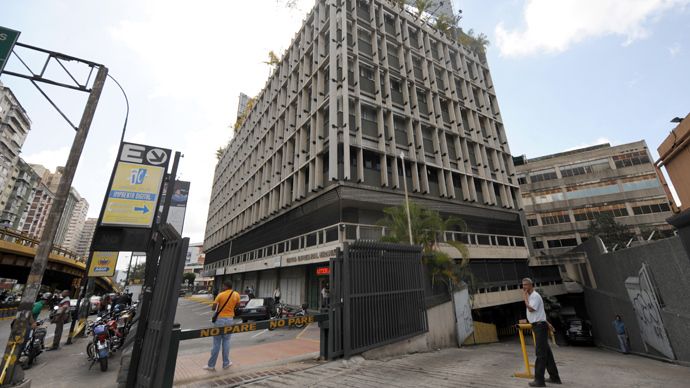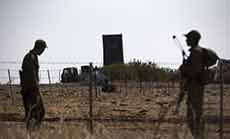Eye on the Enemy: “IDF” encrypting more drones amid hacking concerns

_____________________________________________________
______________________________________________________
"IDF" encrypting more drones amid hacking concerns
Channel 2
A soldier from the "Israeli" army mistakenly entered to the refugee camp "Nour al-Shams" east of Tulkarm, and he was pulled out unharmed by Palestinian security men. The "Israeli" military is investigating the incident, for things could have gone worse.
The initial investigation showed that the soldier was confused; he missed the road and didn't notice the signs in place when he arrived to the Palestinian region. Palestinian security agents succeeded in finding him, and in coordination with the civil administration, he was rescued unharmed and turned over to military police that dealt with the matter.
Sources in the "Israeli" army said in an online interview with Channel 2 that they were astounded by the incident, for it is not the first of its kind. "The mechanism of handling such an issue should be clarified. Such incidents can happen again until a disaster occurs," a military source stated. "Israeli" army reiterated that access to areas "A and B" is forbidden and dangerous. Military police opened an investigation in the incident.
"Israel's" enemies boosting intel gathering efforts
By YAAKOV KATZ, Jpost.com
MI officer says adversaries using civilian technologies to target military communications systems.
Efforts by "Israel's" enemies to gather intelligence on the "IDF" have increased recently particularly by use of signal intelligence capabilities, a senior Military Intelligence officer warned on Monday.
The officer said that "Israel's" adversaries were using technology available on the civilian market for intelligence- gathering purposes. The focus was on various military communication systems as well as cyber space.
"We are seeing an improvement by the other side in its ability to gather intelligence," the officer said. "They can buy civilian equipment to gather intelligence and there is also the ability of a number of groups with varying capabilities to work against us."
Due to the increase in the perceived threat, the "IDF" Information Security Unit embarked Monday on a new campaign aimed at raising awareness throughout the military and among reservists of the need to protect information obtained in the military.
"The potential for information to leak from the "IDF" is increasing and the challenge to safeguard a secret is greater," the officer said, noting for example the use of social media sites by soldiers and reservists.
Access to the Internet, the officer said, posed a major challenge since it enabled soldiers to simply take information - even if not maliciously - and post it online. As an example, the officer referred to a recent case when a soldier posted on his Facebook page that his unit was planning an operation that night in a specific Palestinian village in the West Bank.
The "IDF" had to cancel the operation.
The officer said that the Information Security Unit, a part of Military Intelligence, frequently listened to conversations on military networks and tracked email correspondence with non-military elements to ensure that sensitive information does not leak.
He said that the unit recently appointed Information Security officers to units - mostly in the field - which did not traditionally have such an officer within its ranks. In other units, officers with existing jobs were trained to also be in charge of ensuring information security within their bases.
Despite the increased threat, the officer said that the IDF was expecting to move forward with plans to replace all of the civilian mobile phones in use by officers and career servicemen with smart phones. Distribution of the new phones will begin in the coming weeks.
He said that the military would be stricter in enforcing rules with regards to the use of the new phones and their exclusion from classified meetings. He also said that the Information Security Unit had developed the ability to block cellular coverage from certain areas if needed when classified discussions were taking place in the vicinity.
By YAAKOV KATZ, Jpost.com
Decision to encrypt new model of Skylark I UAV stems from probe revealing intercepted surveillance footage's role in "Shayetet Disaster."
The "IDF" is continuing to encrypt its unmanned aerial vehicles amid concern that "Israel's" adversaries have gained technology which enables them to intercept surveillance footage.
In the coming months, the Ground Forces Command will take delivery of a new model of the Skylark I UAV - developed by Elbit Systems - which will come with a new encryption system aimed at preventing enemy forces from intercepting its footage.
The Skylark I drone has been supplied over the past two years to "IDF" battalions as part of the "Sky Rider Program," which was created to provide battalion commanders with their own aerial surveillance capabilities without needing to rely on the "Israel" Air Force.
The Skylarks currently in "IDF" use were recently grounded after the landing airbag opened unexpectedly on a number of drones in mid-flight. The Skylark I lands by opening an airbag which it lands on to prevent damage to the body of the aircraft.
The man-portable Skylark I weighs around 6 kilograms and is designed for "under the clouds" reconnaissance missions.
It can be launched by hand or a catapult and has an operational endurance of around three hours at altitudes of up to 3,000 feet.
In addition to the built-in encryption, the new batch of Skylarks will also include a control system enabling commanders to switch between UAVs during missions without interrupting the tracking of a target.
The requirement to encrypt drones was issued to domestic defense contractors by the "IDF" in 2010 after a military probe concluded that Hizbullah succeeded in ambushing a Navy commando force in 1997 after intercepting surveillance footage of a planned raid in Lebanon.
In what has been called the "Shayetet Disaster," 11 commandos from the Navy's Flotilla 13 - known as the Shayetet - were killed in a Hizbullah ambush in 1997, including the commander of the force, Lt.-Col. Yossi Korakin.
The "IDF" assumption had been that the ambush was random and that Hizbullah did not have advance intelligence about the raid on the Ansariya Beach in Lebanon.
In August 2010, though, Hizbullah Sheikh Hassan Nasrallah revealed footage from what he claimed was an "Israeli" UAV that had conducted surveillance over the area that the commandos were supposed to raid.
After Nasrallah's press conference, then-IDF Chief of Staff Lt.-Gen. (res.) Gabi Ashkenazi ordered the Navy, Military Intelligence and the "IDF's" C4I Directorate to establish a panel of experts to investigate whether the Hizbullah footage was genuine. The team concluded that it was and had been intercepted during an "Israeli" surveillance mission over the planned raid area.
Source: Hebrew News, Translated and Edited by moqawama.org




